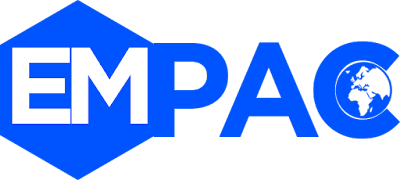Introduction
In an era where the internet reigns supreme, the role of web design in economic growth has become increasingly significant. In Ghana, a country marked by a vibrant entrepreneurial spirit and a rapidly growing tech scene, the impact of web design is a subject worthy of in-depth exploration.
Transforming Ghana’s Digital Landscape
Web design in Ghana transcends mere aesthetics. It's a blend of art and science, involving usability, accessibility, and user experience. As digital adoption grows, sophisticated web design is becoming an indispensable tool across various sectors.
Economic Impacts of Web Design
- E-commerce Enhancement: A well-crafted e-commerce website can revolutionize shopping experiences, elevate consumer trust, and heighten conversion rates. This results in increased sales and a significant contribution to the digital economy.
- Government Services Optimization: Thoughtfully designed government websites improve the delivery and accessibility of public services, bolstering citizen satisfaction and engagement.
- Education and Training Enrichment: In the digital education realm, effective web design is crucial for creating engaging and accessible learning platforms.
Case Studies: Demonstrating Success in Ghana
- Jumia: Ghana's leading e-commerce platform, Jumia, showcases the power of well-executed web design in enhancing online shopping experiences.
- GhPost GPS: The government-run parcel tracking service has utilized web design to improve user interaction, fostering public trust in digital government services.
- Africraft: An online marketplace for African crafts, Africraft has effectively used web design to globally market local products.
The Innovation Factor in Web Design
Web design is a playground for innovation and creativity:
- Mobile-First Approach: Recognizing the prevalence of mobile internet use, designers focus on creating mobile-optimized websites.
- Localization and Cultural Integration: Incorporating local languages and cultural elements, web designers make digital platforms more relevant and engaging for the Ghanaian audience.
- Inclusive and Accessible Design: Emphasizing accessibility, web designers ensure their creations are usable by people with diverse abilities.
Future Trends and Technologies
The potential of web design in shaping Ghana's digital future is vast:
- Integration of Emerging Technologies: Technologies like Augmented Reality (AR) and Virtual Reality (VR) are set to transform web experiences.
- Leveraging Data for Personalization: Utilizing analytics to create tailored web experiences.
- Artificial Intelligence in Design: AI is poised to revolutionize web design through automation, enhancing creativity and efficiency.
Challenges and Opportunities
While web design offers immense potential, challenges like limited access to technology and a skills gap in web design need addressing. Tackling these challenges requires a multi-pronged approach involving government initiatives, educational programs, and private sector collaboration.
Conclusion
The role of web design in boosting Ghana’s digital economy is both extensive and profound. By prioritizing high-quality web design, Ghana can enhance its various sectors, attract international investments, and create a more inclusive digital environment. This strategic focus on web design is essential for Ghana's sustainable economic growth in the digital age.
Call to Action
For Ghana to fully harness the benefits of web design, continuous investment in digital infrastructure, education, and skill development is crucial. The future of Ghana's digital economy depends significantly on the quality of its web design, making it an area of national importance.





0 Comments